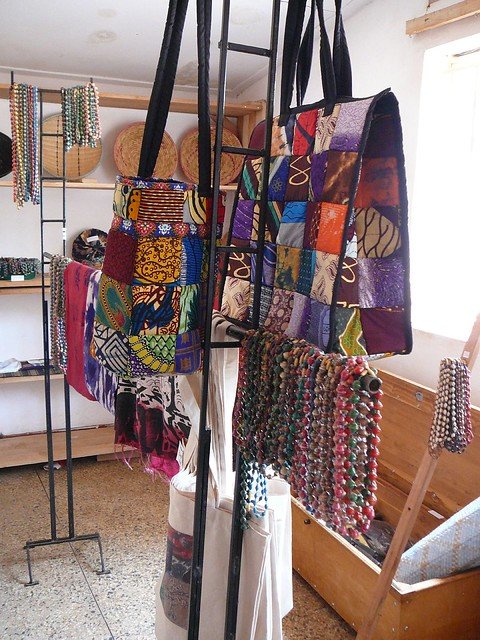Shopping in Bwindi National Park
Shopping for tourists in Bwindi Impenetrable National Park and its surrounding areas may be limited compared to more urban or commercialized destinations. Bwindi National Park is renowned for its gorilla trekking experiences and is primarily a protected wilderness area. However, there are still some options for shopping and obtaining souvenirs for tourists.
Local Markets and Craft Shops:
Local markets and craft shops near Bwindi Impenetrable National Park can be great places to explore and find unique souvenirs and handmade products. These markets and shops often offer a variety of items that reflect the local culture, traditions, and craftsmanship. Here are some things you might find in local markets and craft shops:- Handmade Crafts: Look for traditional crafts such as baskets, pottery, wooden carvings, beadwork, and textiles. These items are often crafted by local artisans and showcase the artistic skills of the region.
- Traditional Artwork: You might come across paintings, sculptures, and other forms of traditional artwork that depict scenes from nature, wildlife, and local life.
- Jewellery: Local markets often have a selection of jewellery made from materials like beads, semi-precious stones, and natural fibres. These pieces can be unique and representative of the local style.
- Clothing and Textiles: You may find clothing items like traditional garments, shirts, dresses, and scarves made from locally sourced fabrics and adorned with traditional patterns.
- Home Decor: Look for decorative items like wall hangings, masks, and figurines that can add a touch of African flair to your home.
- Souvenirs: Many markets offer a variety of smaller souvenirs such as keychains, magnets, postcards, and trinkets that you can take home as mementos of your visit.
- Local Foods and Produce: In addition to crafts, some markets might offer locally produced food items, spices, and fresh produce that you can sample or take home.
- Cultural Artifacts: Depending on the market, you might also find cultural artifacts like traditional musical instruments, utensils, and tools that are used in daily life.
Lodges and Camps:
Some lodges, camps, and accommodations in the vicinity of Bwindi National Park might have gift shops that offer a selection of local handicrafts, clothing, and souvenirs. These items are typically curated to provide visitors with authentic memorabilia.Community Projects and Cooperatives:
Purchasing from community projects and cooperatives can have a direct and positive impact on the well-being of local communities near Bwindi Impenetrable National Park. These initiatives are often aimed at empowering local residents by providing them with opportunities for income generation and sustainable livelihoods. When you buy products from these projects, you’re not only bringing home meaningful souvenirs but also contributing to the economic and social development of the area. Overall, shopping at community projects and cooperatives is a rewarding way to give back to the local community and make a positive impact during your visit to Bwindi National Park.Local Artisans and Workshops:
Interacting with local artisans and participating in workshops can indeed offer a more personalized and meaningful shopping experience during your visit to Bwindi Impenetrable National Park. Engaging with artisans and learning about their craft allows you to appreciate the cultural richness of the region and directly support their livelihoods. Here’s what you might expect when interacting with local artisans and participating in workshops:- Hands-On Experience: Workshops provide you with the opportunity to learn about traditional crafting techniques, whether it’s making jewellery, weaving baskets, or creating intricate carvings. You’ll gain insight into the skill and effort that goes into crafting each item.
- Cultural Immersion: Engaging with artisans often includes conversations about their culture, heritage, and the significance of their craft in their community. This cultural exchange can deepen your understanding of the local way of life.
- Customization: In some cases, you might have the chance to customize or personalize the items you purchase, making them even more special and unique to you.
- Supporting Local Economy: When you purchase directly from artisans, the financial benefit goes directly to them and their families, providing a direct and impactful contribution to the local economy.
- Authenticity: Items obtained from local artisans are likely to be more authentic and representative of the local culture compared to mass-produced souvenirs.
- Creating Lasting Memories: The experience of learning from and interacting with local artisans can create lasting memories of your trip, beyond just the items you purchase.
- Ask Locals: Ask your accommodation, tour guides, or local residents for recommendations on where you can find workshops or interact with artisans.
- Tourist Information Centres: Local tourist information centres or visitor centres might have information about scheduled workshops or opportunities to meet artisans.
- Online Research: Look for online resources, social media groups, or websites that promote local artisans and workshops in the Bwindi area.
- Guided Tours: Some tour operators may offer experiences that include visits to local artisans’ workshops as part of their itineraries.
- Cultural Festivals and Events: If there are any cultural festivals or events happening during your visit, these could be opportunities to meet artisans and see their work.
- Research and Identify: Start by researching local artisans and cooperatives in the Bwindi area. Look for websites, online marketplaces, and social media profiles where they showcase and sell their products.
- Online Marketplaces: Platforms like Etsy, eBay, or even dedicated local artisan marketplaces might feature products from artisans near Bwindi. Use keywords like “Bwindi crafts,” “Ugandan artisans,” or similar terms to narrow down your search.
- Social Media: Follow local artisans and cooperatives on social media platforms like Instagram, Facebook, or Pinterest. Many artisans use these platforms to showcase their work and announce new products.
- Contact and Inquire: Reach out to the artisans or cooperatives directly through their online platforms. Inquire about their products, prices, shipping options, and any other details you need to know.
- Support and Purchase: Once you’ve identified artisans or cooperatives whose work you’re interested in, you can proceed to make purchases through their online platforms. Many artisans offer secure payment methods and reliable shipping options.
- Custom Orders: Some artisans might be open to creating custom orders based on your preferences. This can be a great way to get a unique and personalized souvenir.
- Virtual Tours or Workshops: Some artisans may offer virtual experiences such as online workshops or video tours of their workshops. This can give you a closer look at their creative process and the cultural context of their work.
- Shipping Considerations: Be mindful of shipping times and costs, as well as any import regulations or taxes that might apply to your country.




